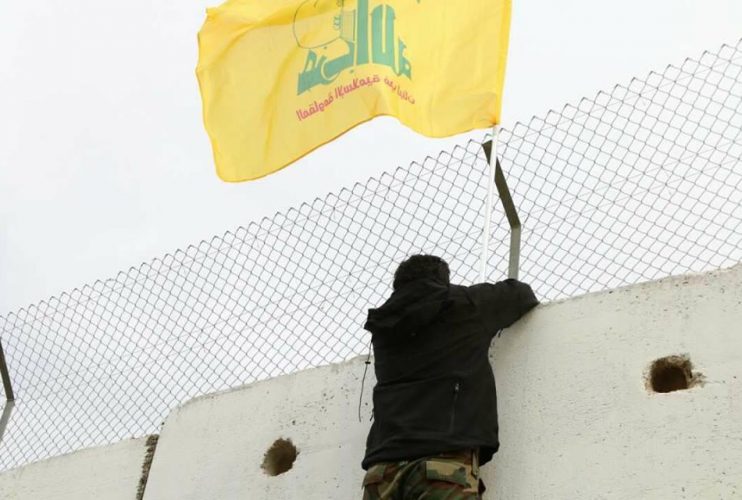By J.M. Phelps (One News Now)
Israel remains threatened from all sides, but her strength and resiliency continue to prevail over a dangerous collection of security challenges.
Lt. Col. (Res.) Sarit Zehavi is a former intelligence officer with the Israel Defense Forces (IDF) within the IDF Northern Command and founder of the ALMA Research and Development Center. She recently provided OneNewsNow with an update about the challenges of security at Israel’s northern border. The northern border is shared by Syria and Lebanon.
About four weeks ago, control over the entire Israeli border was regained by the Syrian regime. Zehavi says Israel is currently “working with the Russians to prevent Iranian and Hezbollah expansion” and the establishment of “a Shiite stronghold across the border.” To prevent strongholds from being gained by Iran and Hezbollah at Syria’s southern border, Israel demands Iran remain 80 kilometers (49.7 miles) from the border.
Zehavi explains: “The main challenge is to make sure the Shiite axis – Iran, Hezbollah, and partners with the Syrian government – are not being deployed on the Syrian side of the border with Israel. That’s where they will endanger our security.
“To remind everyone,” she adds, “Iran is actually desiring to annihilate the state of Israel. They have already attacked the state of Israel a few times in the past few months with missiles and armed drones that penetrate into Israel.”
While the border with Syria is the most unstable, Hezbollah is growing increasingly confident at the Lebanese border. Zehavi says the “presence of Hezbollah flags, posters, and people wearing Hezbollah uniforms along the border” is becoming more and more prevalent.
“On the Lebanese border,” she points out, “it has been relatively quiet for the last several years. Not ultimately quiet, but mostly quiet. However, Hezbollah managed to establish a widespread military infrastructure inside the villages in south Lebanon. In each Shiite village, you can find hundreds of rockets that are targeting Israel from varying ranges. Though the border is currently quiet, Hezbollah’s capabilities could be very problematic in a time of war or any escalation.”
Lt. Col. Zehavi continues, alluding to the fact there is also a connection to what’s happening in the south at Gaza and the effects of the Shiite axis led by Iran. Mainstream media has been quick to blame Israel for the violence in Gaza.
“It is important for me to emphasize that Israel does not attack without reason,” she asserts without hesitation. “It is retaliating to incidents Hamas is creating along the border. Snipers fire against our soldiers. Balloons – which are supposed to be innocent products – are attached to explosives to cross the border. These things are encouraged by Iran in order to weaken the state of Israel, harm the resilience of our society, and damage our diplomacy all over the world.”
Zehavi considers the main challenge of the south is to bring back the quietness. “Quietness is created through deterrence,” she believes. “The question is ‘How do we maintain the deterrence to Hamas without having a military operation in Gaza?’ We don’t want to have a military operation in Gaza.”
In a closing and candid moment, Zehavi reveals: “We live in a constant contradiction. On one hand, we live a normal life. We feel safe in our everyday life. For example, my children can play at home, or they can go to their friends and they can play outside. On the other hand, my five-year old daughter comes to me when she hears the siren, and she knows exactly what to do. There are incidents, and she remembers them.”
The future of Israel, she concludes, depends on many factors. One of the main challenges at the northern border is “to postpone the escalation of conflict as much as possible,” emphasizes Zehavi. “I say ‘postpone’ because we always have to be prepared. To keep the quietness we have today, the only way to do it is to preserve our image as strong enough to deal with any conflict.”
J.M. Phelps is a Christian activist and journalist based in the Southeastern U.S. He is also editor and publisher of the website Lantern of Liberty.
Originally published by One News Now on Tuesday, August 21, 2018.
This column is printed with permission. Opinions expressed in columns published by Lantern of Liberty are the sole responsibility of the article’s author(s), or of the person(s) or organization(s) quoted therein, and do not necessarily represent those of the staff or management of, or advertisers who support Lantern of Liberty.
Photo courtesy of ALMA Research and Development Center.






